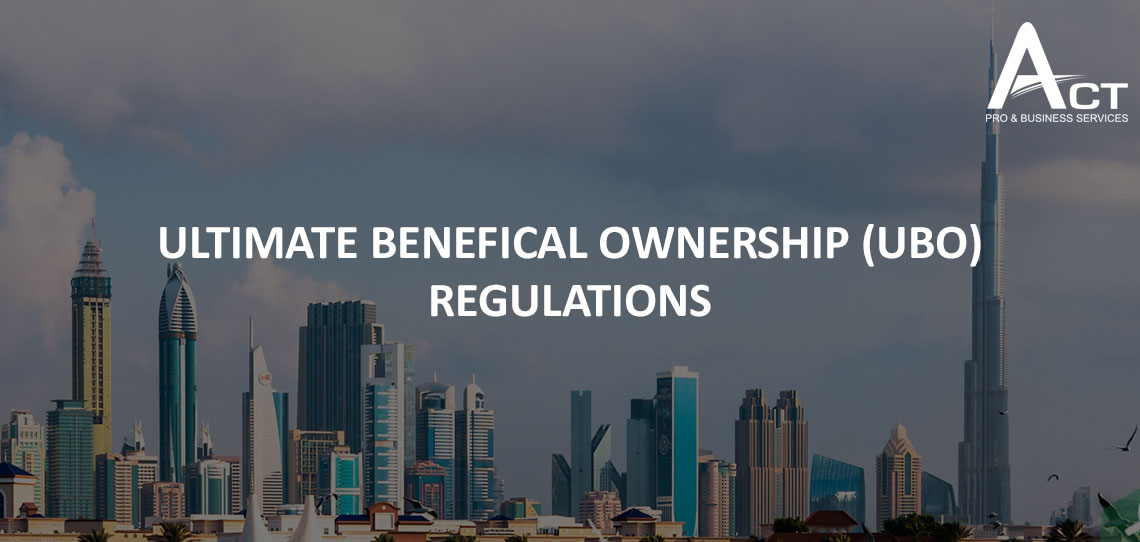Over the years the UAE has gained worldwide popularity as a relocation destination. With its attractive Free Zone system and internationally recognized financial centers. Also, the extensive network of Double Tax Treaties, and political stability, it is the go-to jurisdiction for a growing number of expatriates and corporates alike.
With Expo 2020 in-sight, the UAE is experiencing a heightened global interest.
There are many new regulatory updates in the region including Foreign Direct Investment, Economic Substance, In country value, and visa rules. Also, the UAE has recently announced the formal roll-out of uniformized minimum disclosure requirements for UAE- incorporated corporate entities and the introduction of a beneficial ownership register. The new regulations – Cabinet Resolution No. 58 of 2020 on the Regulation of the Procedures of the Real Beneficiary (the Resolution) – came into effect on 28th August 2020. These regulations are a response to an increased focus by national authorities and global regulatory groups, to combat money laundering, bribery, and corruption.
These regulations mandate UAE companies established in the Mainland and Non- financial Free Zones to prepare, maintain Beneficiary Ownership details including a Register, and submit details of the same to its Relevant Authority.
In the case of companies that are under dissolution or liquidation, the appointed liquidator has an obligation to provide a true copy of the updated UBO register to the Registrar within 30 days of the liquidator’s appointment.
The deadline for filing the Registers is October 27, 2020.
As per UBO regulations, the Entities must maintain the below Registers in their office premises:
- A Shareholder’s Register
- A Register of Ultimate Beneficiary Owners; and
- A Register of Nominee Directors.
For the Registers of Real Beneficiaries, a Real Beneficiary shall be:
- Any natural person who ultimately owns or controls or has the right to vote over at least 25% of the company’s share capital. Whether through a direct or indirect chain of ownership or control. Or any natural person who has the right to appoint or dismiss the majority of the directors of the company.
- If no notarial person meets the criteria under point 1 above or if there are doubts as to the identity of the beneficial owner, the beneficial owner shall be any natural person who manages or administers the company.
- If the company is unable to identify any natural person that meets the criteria under points 1 and 2 above, then beneficial owner shall be the natural or a legal person who is the senior manager of the company.
Every Entity must take reasonable measures to obtain appropriate, accurate, and up-to-date data for the Registers. They also need to preserve their records from damage, loss, or destruction. (i:e Memorandums, Articles of association, Power of Attorneys, Board resolutions, Foreign Company documents, License information, a chart showing the hierarchy of ownership leading to the UBO, passport / visa copies of the UBO’s) . They must also appoint an individual point of contact (resident in the UAE) and provide the details of that contact to the Registrant.
Each register must be maintained for the life of the company. Also, for a period of five years from the date of its de-registration, liquidation, or dissolution.
What should the Registers contain?
-
Register of Ultimate Beneficiary Owners
The following data of the UBO should be included: name, nationality, place of birth, residential address, and travel ID card number. Also, the date of issuance and expiry, the reason why the individual is classified as a UBO. Additionally, the date on which the person became a UBO or ceased to be a UBO (if applicable).
-
Register of Partners or Shareholders
The number of share interests held by each partner or shareholder. Also, the voting rights attached to such share interests and the date of acquisition of these shares. For physical persons – the register should include their full names, nationality, address, place of birth, employer name, and address. Also, an ID or travel document copy.
For legal persons – the register should include their constitutional documents, address, and details of their senior management. -
Register of Nominee Directors/Managers
Details of directors/managers acting in accordance with the instructions of another person. The register should include their full names, nationality, address, place of birth. Including, the employer’s name and address and an ID or travel document copy.
What is the impact of non-compliance?
For companies found to be non-compliant with the decision, the UAE Ministry of Economy may impose sanctions on those companies. The list of administrative sanctions is yet to be issued.
What about companies with UAE Local Partners / Sponsors?
It is not clear at this stage whether the scope of the decision will impact ownership structuring arrangements in place. (i.e, with UAE local partners who own 51% of a company due to foreign ownership restrictions). The scope of the decision requires that these local partners and their personal details should be recorded on the shareholder register. But it does not specify that the structuring arrangements themselves need to be disclosed. However, as the rules have been drafted broadly and require disclosure of ‘control’ relationships, full details of a company’s ultimate controllers should be disclosed in the UBO register. Also, to the Registrar regardless of the actual shareholding structure.
UBO regulations do not apply to the below-mentioned companies
- Companies wholly owned by the Federal or local government or any other companies wholly owned by these companies; and
- Companies licensed or registered in Financial Free Zones of UAE (Dubai International Financial Centre and Abu Dhabi Global Markets).



